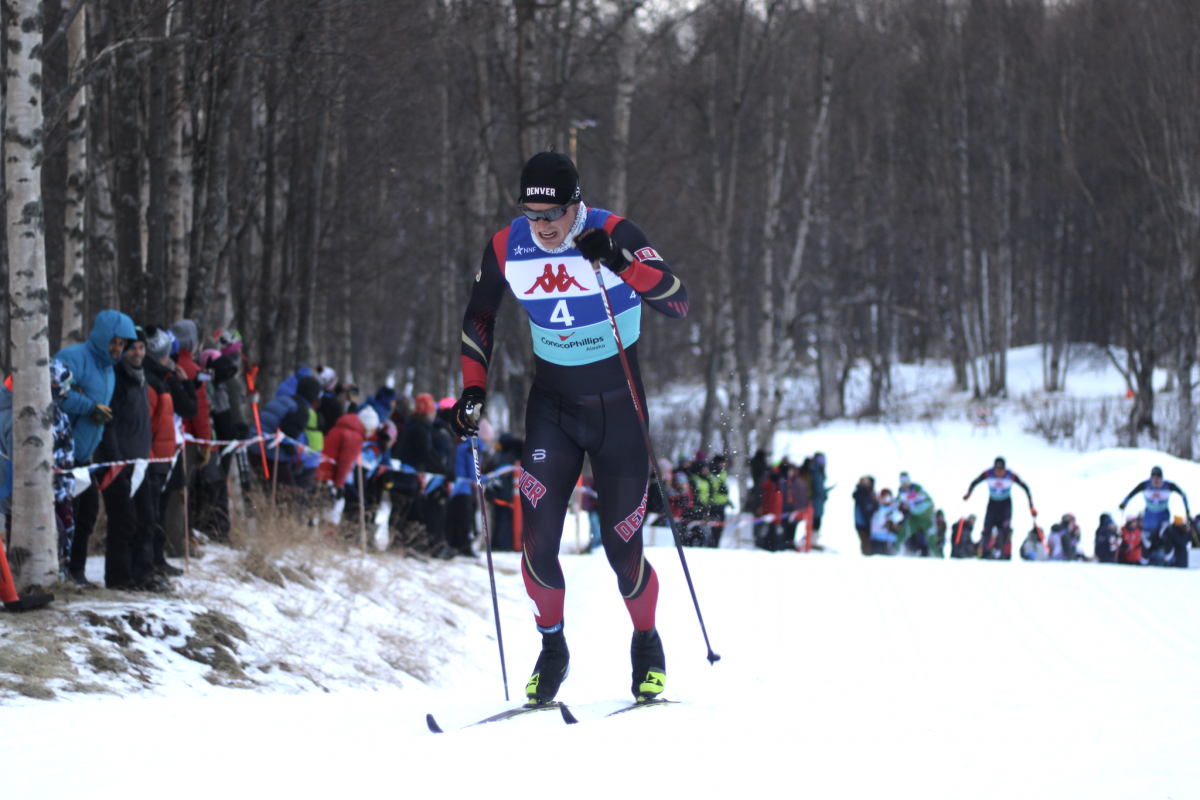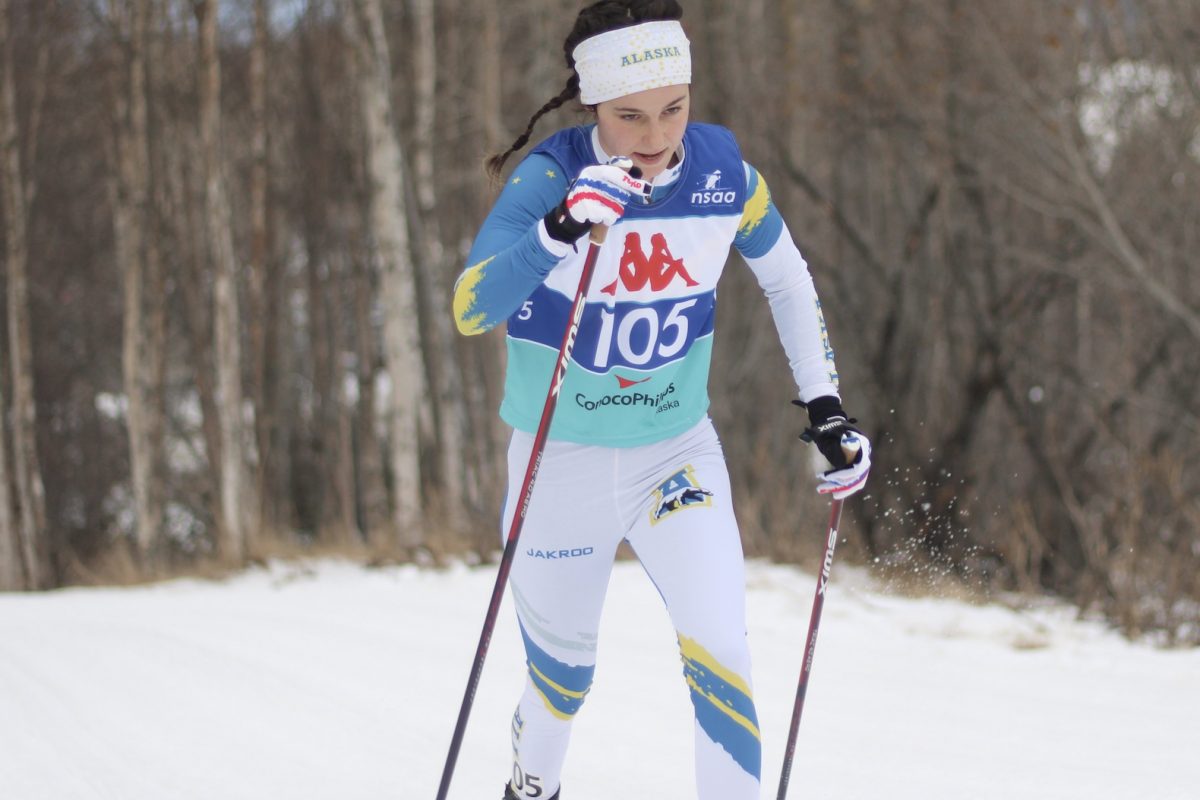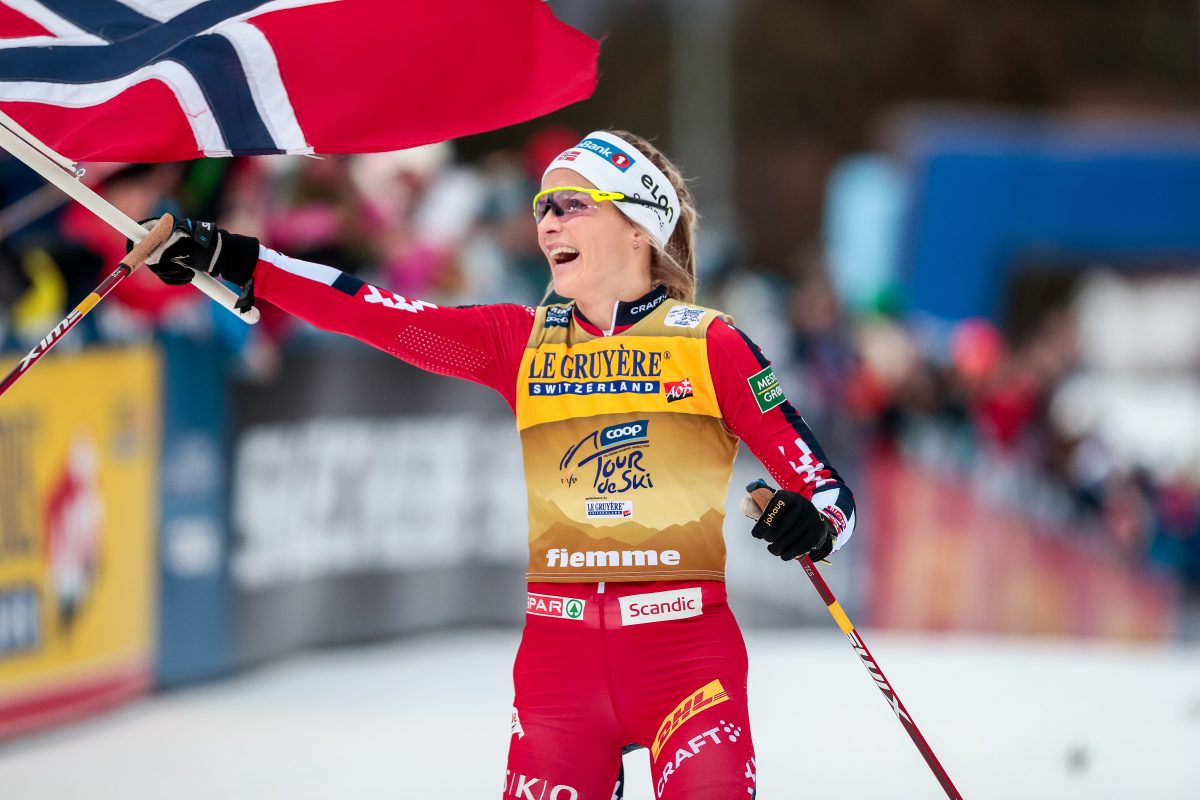You might imagine traveling from the U.S. to Australia as being an arduous marathon of flights- and it is- but as Jessie Diggins points out, it turns out to be about the same length of journey time as the U.S. Ski Team makes annually when heading to Ruka, Finland for the first World Cup of the season. “So in my head, I was ready for it to be like this crazy long, super hard travel,” said Diggins, “And then I was like, well, actually, this isn’t any harder than what we do every single fall. So I really thought it wasn’t that bad. I mean, yes, it’s a super long flight, but overall, it’s only three flights.”
Diggins, along with teammate Julia Kern, and coach Jason Cork, made the trip “down under” for three weeks of snow skiing at the Falls Creek cross-country center. This August, the U.S. Ski Team has been operating with a bit of a divide-and-conquer strategy, as coaches Matt Whitcomb, Greta Anderson and Kristen Bourne took six athletes to Scandinavia, Kern and Diggins found skiing elsewhere. As Whitcomb explained, “We weren’t able to fit it into the budget to have a bunch of people go down to New Zealand or Australia,” thus the separate trips.
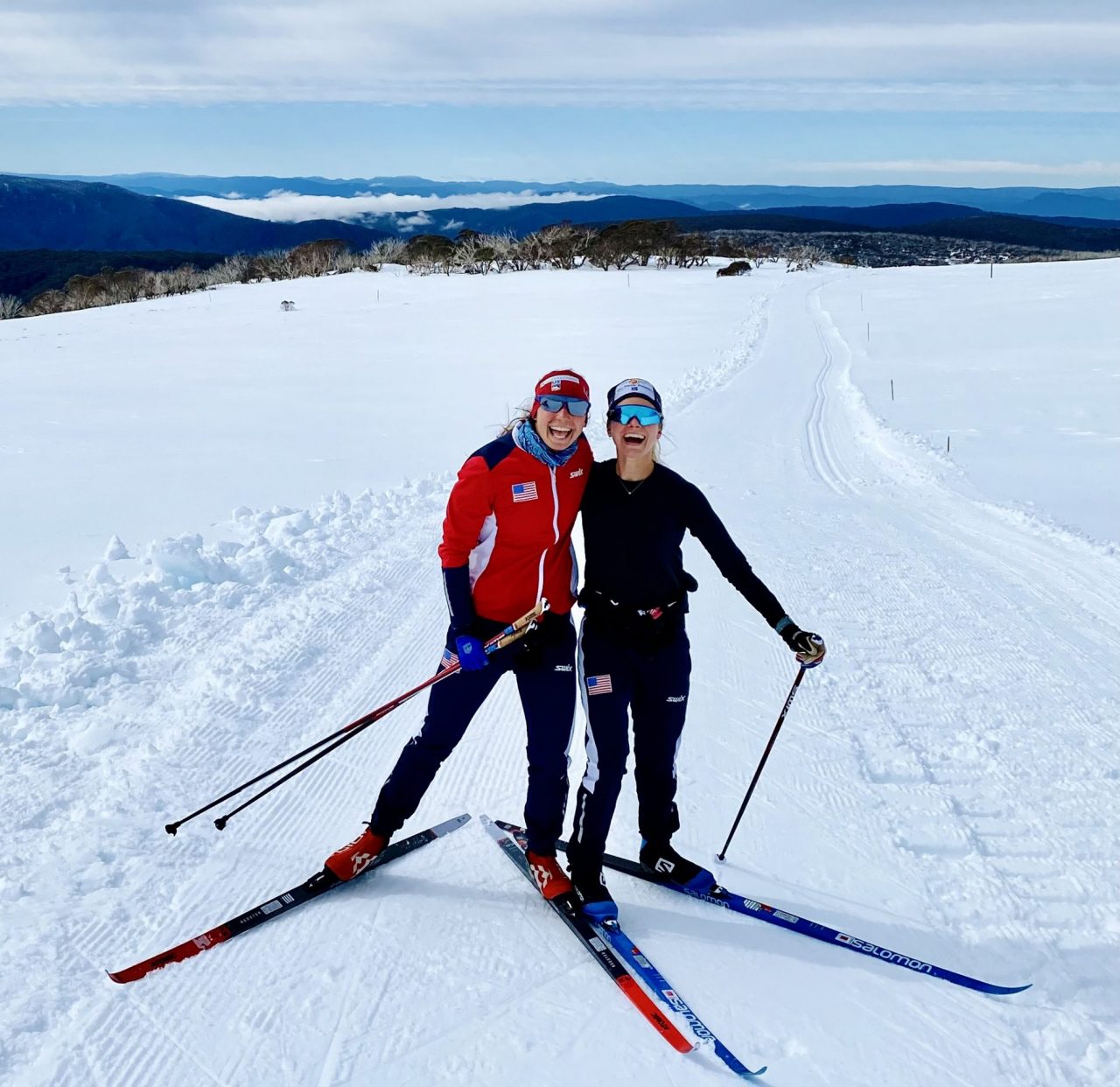
Historically, the U.S. Ski Team has spent time on snow at the Snow Farm, in New Zealand, staying at a lodge just feet from the ski trails. But, as Diggins explained, the lodge shut down during COVID and has yet to reopen. “[That] makes it less desirable because it was going to be a long drive up,” Diggins said, “So we thought, we’ve never tried Australia and we’ve heard Falls Creek has amazing skiing… so we thought this would be a good year to try something new and I’m really glad we did. It’s really cool because it’s hard to get the feel for a place unless you get to actually go to a camp there. So this has been really neat.”
In Australia, the crew is staying in the town of Bogong, about a 30 minute drive from the Falls Creek trails. “I want to say a huge thank you to the Australian National Team and Finn (described as the Chris Grover of Australia), between him and Cork, they found us a really nice cabin situation,” said Diggins.
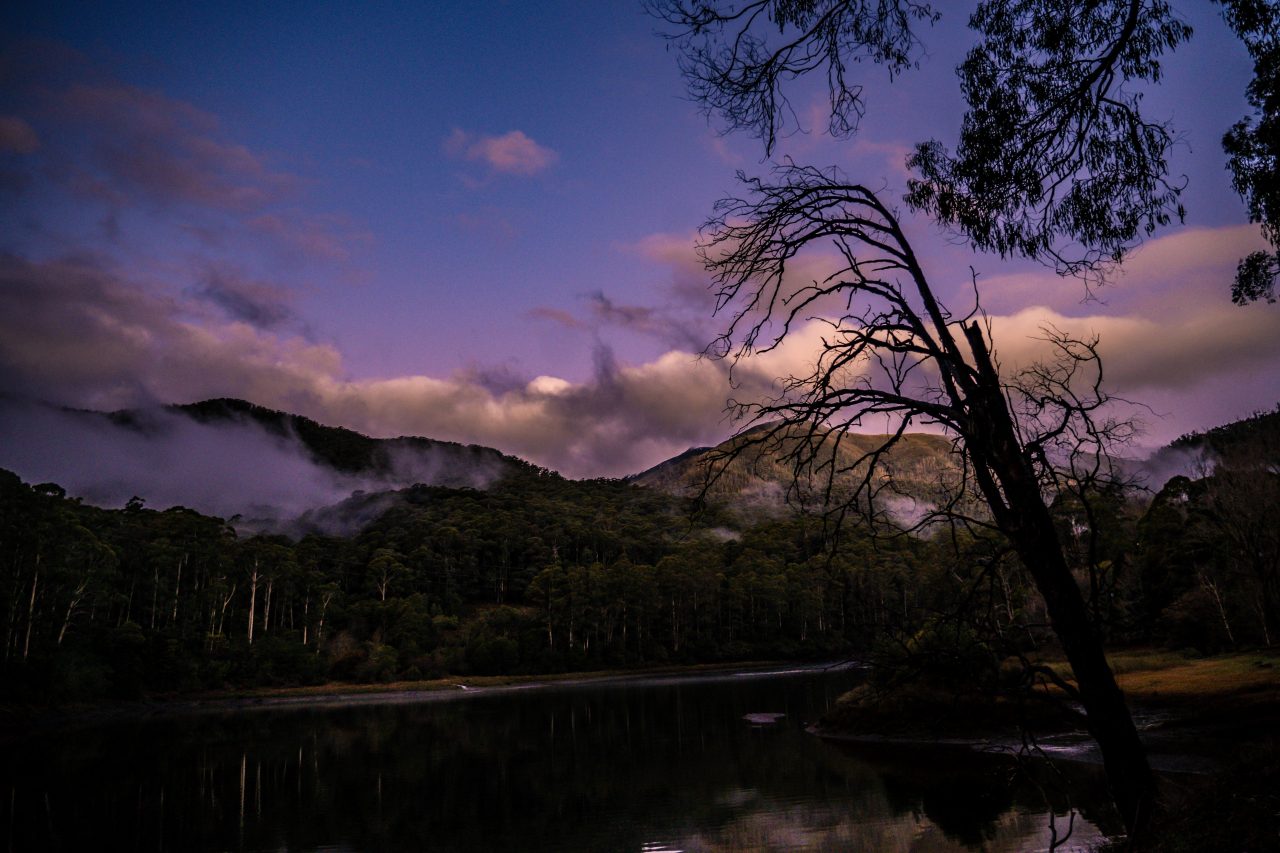
With something like 300 turns on the road between Bogong and Falls Creek, Diggins and Kern have been using the Birkebeiner Ski Club clubhouse to hang out in, between two-a-day ski sessions. “[They’ve] been super kind and gracious letting us hang out in the clubhouse,” said Diggins, “So we have a warm place to just chill for a couple hours.”
For both Diggins and Kern, this is their first time visiting Australia and the Falls Creek trail system. “There’s a lot of corners, and I think they say about 60 k of skiing or so,” said Kern, “There’s a lot of terrain out there and in general, pretty gradual and rolling. There are some big loops- there’s like a 12 or 14 k loop that we skied this morning, then there’s some more steeper hills near the beginning. So we’ve been able to find terrain for just about everything.”
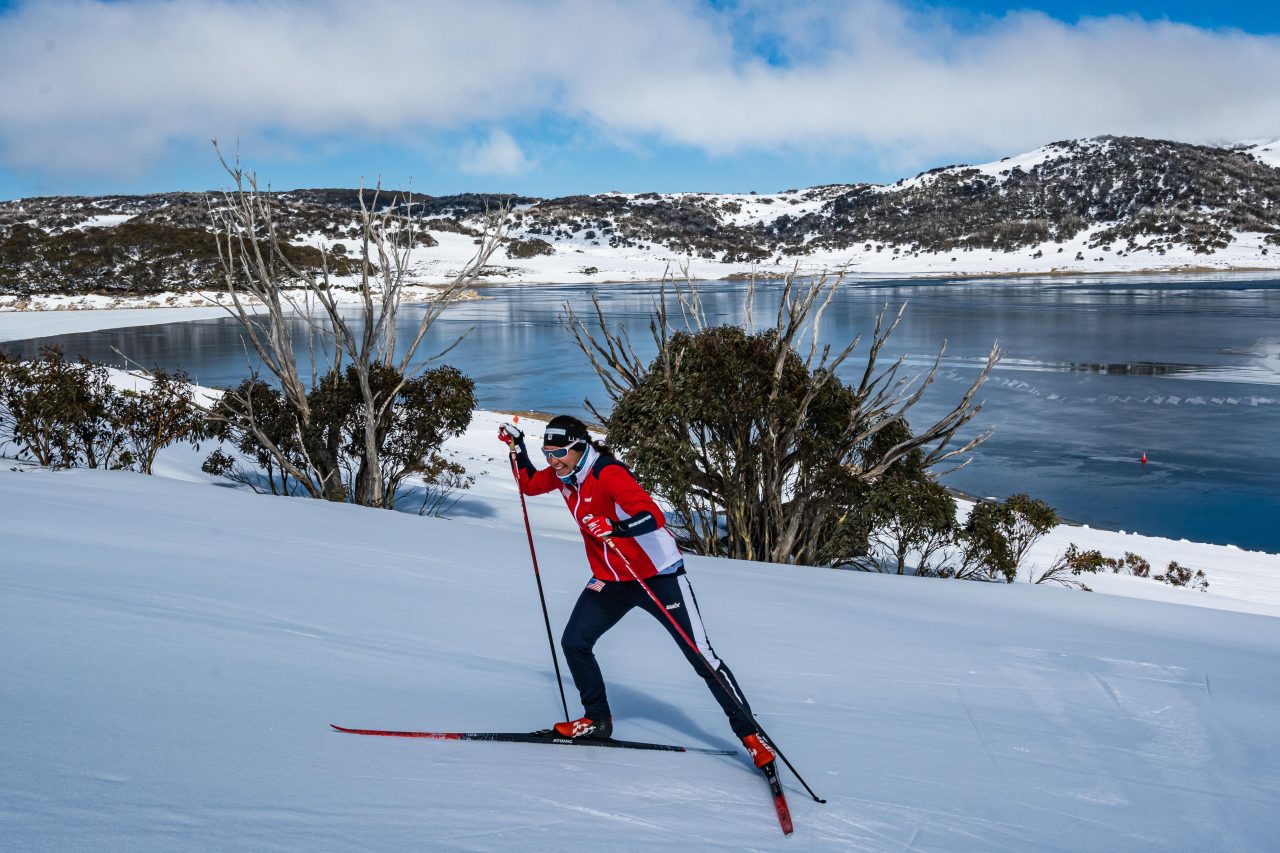
The travlers have also experienced the full gamut of weather conditions. “We’ve had every bit of weather from sunshine to snow, to sleet, to wind gusts, and everything in between,” said Kern. “We’ve really gotten to experience about every condition to train in and do some intervals.”
Diggins added to that, saying, “I think it’s really nice because you don’t want to get used to just one condition right? Like if you’re coming down to get some time on snow, it’s really nice to be able to touch on every different kind, so I think that’s really, really valuable.”

Besides the general goal of spending time on-snow, both athletes had a specific focus for the camp. For Kern, it was an emphasis on classic skiing. “Roller skiing is great training,” she said, “But it’s not the equivalent of trying to kick a ski in a variety of conditions, and we’ve actually got a lot of zeros conditions here, so it’s been a really great time to practice skiing in zeros conditions.”
Additionally, Kern has been testing skis and getting a feel for them, having switched to Atomic this season. “So it’s been testing skis, classic skiing, and then just speed work and intervals,” she said. “Skiing is not the same as roller skiing, you can do all that but having the feel for snow and variable terrain and punchy or firm conditions, for me, I think it’s easier to commit to going all out in a speed when you know you can just fall on snow instead of pavement, so we’re working on that.”
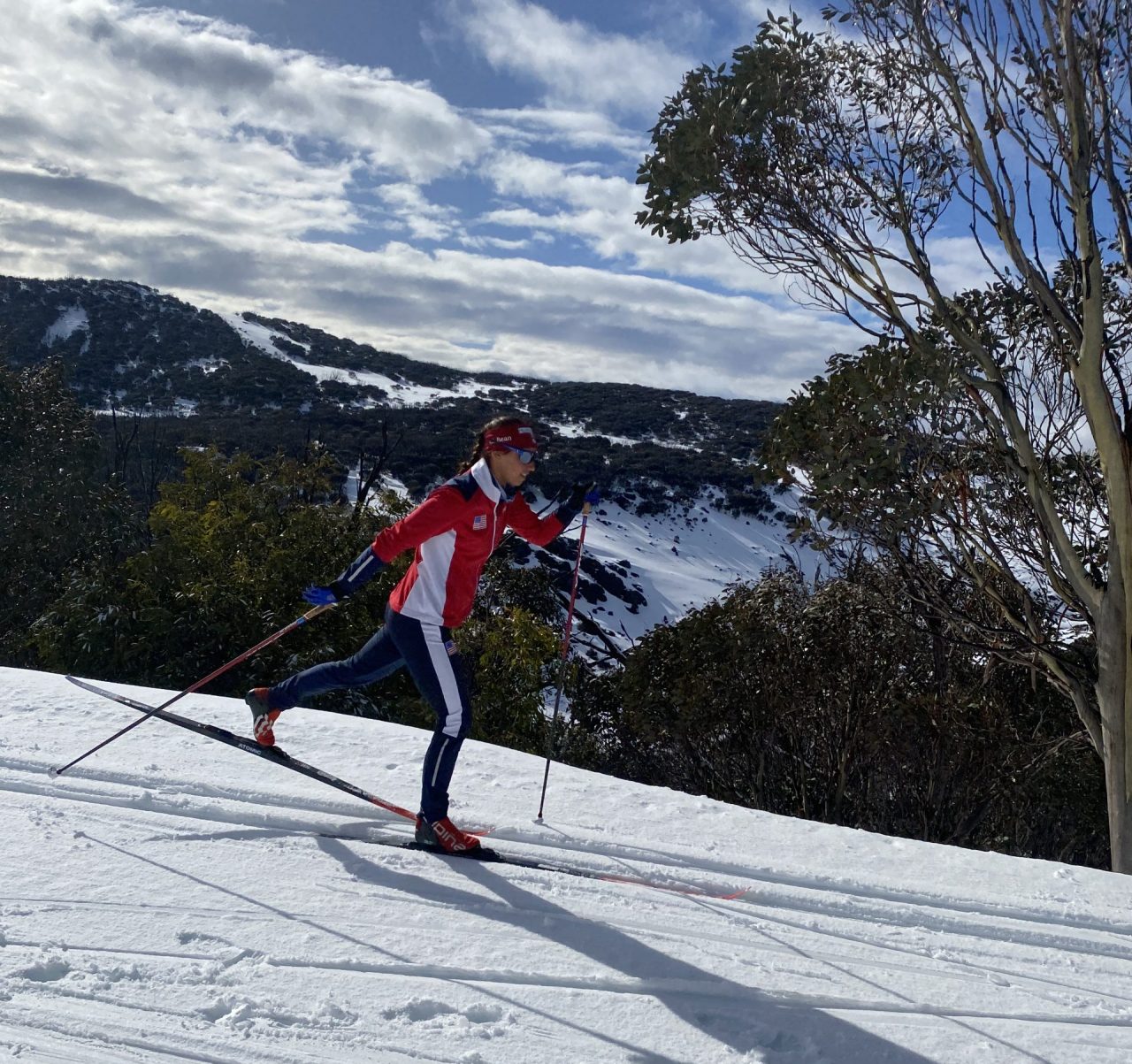
Diggins chimed in, saying, “As someone who has fallen on her face roller skiing, for me, it’s really nice to be able to, like today we’re practicing sprint finish lunges, and on roller skis you really just can’t do that.”
Diggins has been prioritizing practicing the things that don’t work as well on roller skis, like start speeds, lunges and herringbone. “When you’re here for three weeks, you feel like, if I have a bad day, or I’m tired, I can afford to just be really smart and relaxed about it and still know that I’m going to get all the time I need to make these changes on snow,” she said.
The first week was spent getting used to being on snow again, then in the second week the athletes can move on to making some changes and in the third week, “[We] try to make them stick,” said Diggins.
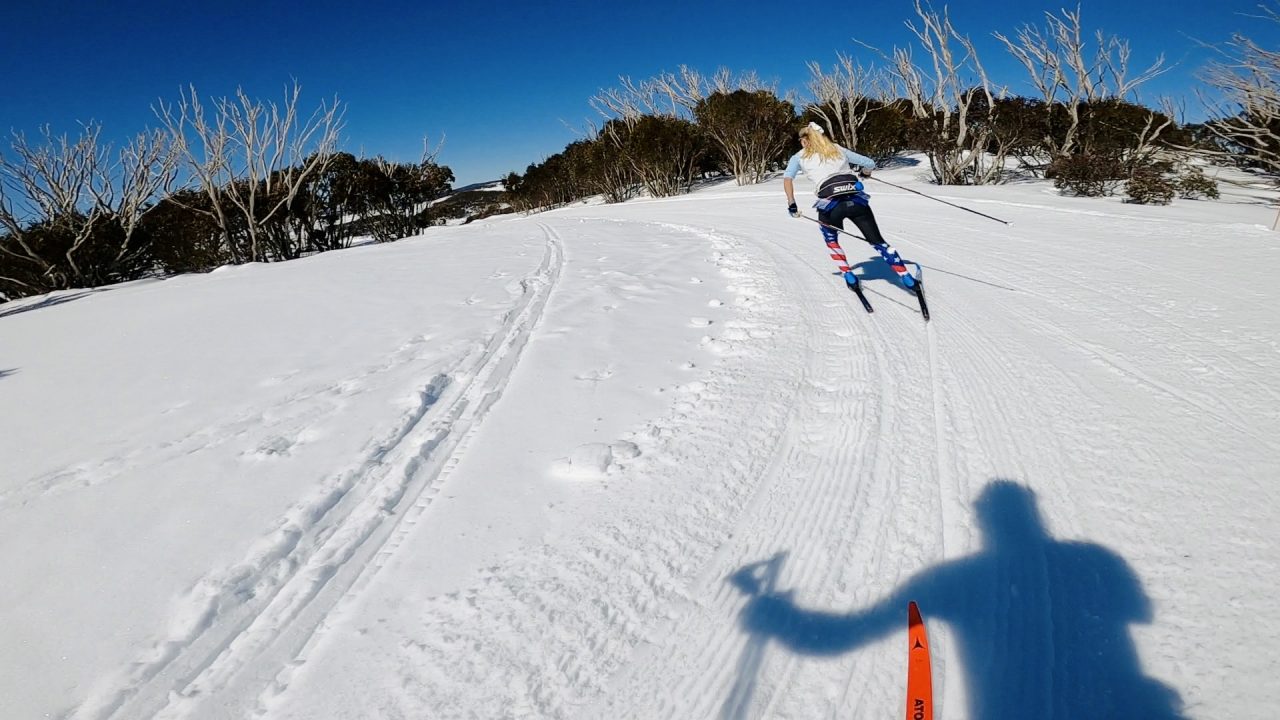
An added bonus to the trip came in the form of the Kangaroo Hoppet Worldloppet race on August 27th. “It’s really cool to finally get to do another Worldloppet on a different continent that we otherwise don’t get to ski in very much,” said Diggins, “I also think it’s really a chance to practice fueling for long races because we don’t get an opportunity to do long races very often, and now we’re going to have a few more on the World Cup circuit.”
After a two-year COVID hiatus, Saturday’s race was the 30th edition of the Kangaroo Hoppet. Diggins took gold, ahead of Kern, and Australian skier, Casey Wright finished third. It turned out to be a double victory for the U.S., as Peter Wolter of Sun Valley topped the men’s podium. Campbell Wright (NZ) took second place and Lars Young Vik (AUS) came in third.
Following the conclusion of their three week camp, Diggins and Kern will be heading in separate directions. Kern plans to stay an extra week in the country, renting a campervan and exploring Australia. “I want to see a little bit, and traveling forces me to make sure I recover and don’t jump right into training right away,” she explained. After that trip, she will head back to Vermont for two weeks before traveling to Utah for the U.S. Ski Team Park City Camp in October.
Diggins will head straight back to Stratton for a few weeks before flying to San Francisco for the Salomon Women Trail Half-Marathon at the end of September. “And then I come back, and then I go to Las Vegas with Toyota for a show, and then I go right from there to Park City Camp,” she explained, “So it’s a lot of travel this fall, but for some cool events that I’m excited about.”
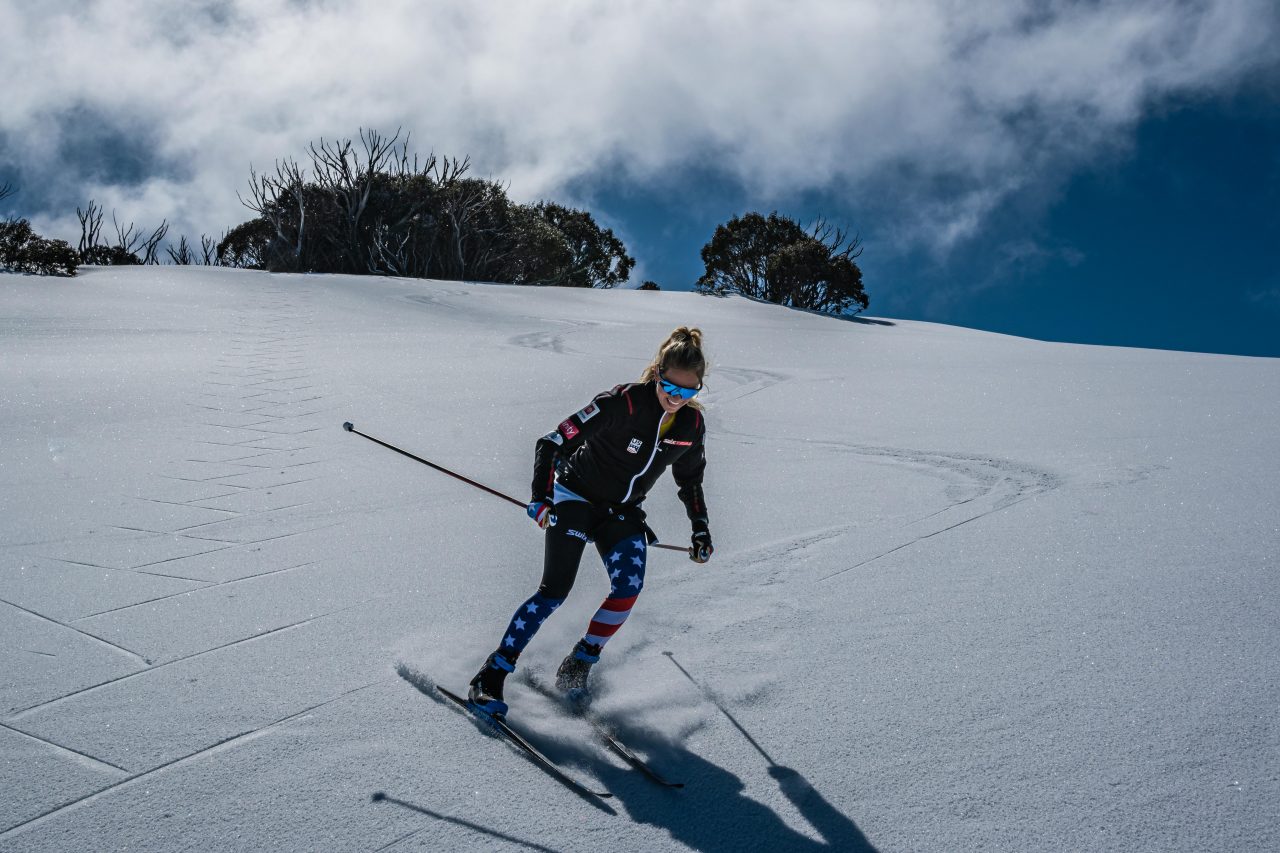
Summarizing their experience in Australia thus far, both Diggins and Kern emphasized how welcoming the community has been. “People are just friendly to a default,” said Kern.
“Everyone has been so welcoming and super kind and helpful,” said Diggins, “It’s such a nice ski community here, it seems like everyone’s really close knit and looks out for each other and there’s all these kids out skiing, and it just seems like a really cool thing they’ve got going on here.”
Ella Hall
Growing up in Washington’s Methow Valley, Ella was immersed in skiing and the ski community from a young age. From early days bundled in the pulk, to learning to ski as soon as she could walk, to junior racing, a few seasons of collegiate racing, and then to coaching, she has experienced the ski world in many forms. Now, as a recent graduate from Dartmouth College, she finds herself living in France splitting her time between teaching English at a university in Lyon, avidly following ski racing (and now writing about it!) and adventuring in the outdoors as often as possible.

